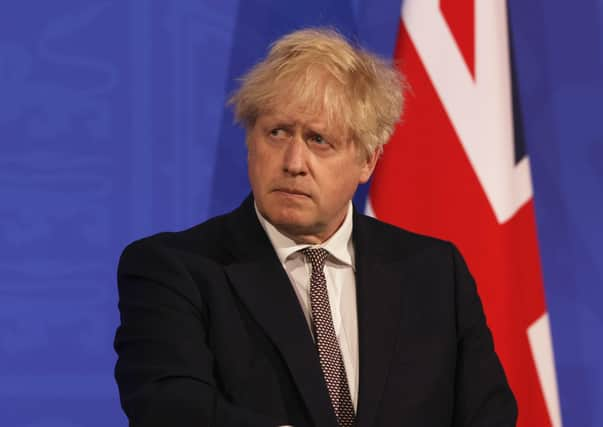Brexit looks very like its a done deal


This now runs a lot deeper than trade. Across the EU most people have simply written off the UK’s 47-year membership as past history that can be forgotten. The UK is now airbrushed out of official reports, which instead focus solely on the EU 27.
The UK in its negotiations with the EU opted for sovereignty over market access or cooperation. The government promised that Brexit would bring new trade opportunities. To date, beyond a planned deal with Australia to import cheap meat and wine to wash it down, we are still waiting for those opportunities to emerge. When that will happen remains an unknown. What is clear is that Brexit has produced a raft of unexpected consequences.
Advertisement
Advertisement
Top of the list are the trade and political issues that surround the NI protocol. This fractured trade within the UK because the government knowingly signed a deal that put a border down the Irish Sea. This was pain inflicted by London not the EU, although Brussels is now not
helping resolve the problem. Other surprise consequences include Ireland, which expected to be a loser from Brexit, enjoying a short term but economically welcome boost in trade to the UK.
This outworking of the law of unintended consequences if just beginning. As the agriculture minister, Edwin Poots, sets out his stall with what looks a promising plan for agriculture support it is clear the UK is facing a big test of devolution. Far from bringing UK farming closer together Brexit is doing the opposite. For years, even as part of the EU, UK farming was a cohesive industry with common goals. Now we are heading for very different structures in England, Scotland and Northern Ireland.
The ultra-green support model in England is potentially unacceptable elsewhere, although it is hard to see how many politicians here can square that with a climate change bill that would destroy farming here.
Advertisement
Advertisement
Time will tell whether London will allow devolution to deliver support models that may be looked at with envy by English farmers. It is however ironic that it is Brexit and not the EU that it could drive the demise of British farming as single entity productivity driven since the late 1700s.
A small, but good, example of being on different tracks is what has happened with geographical indication (GI) products. Those approved and in place before 31 December 2020, when Brexit formally happened, remain part of the original EU scheme with all the national and global protection that offers. The UK could have opted to remain part of that scheme, but instead opted for a home-grown approach. The first product has now been approved. It is Welsh lamb produced on specified salt marshes on the Gower Peninsula. This will be a GI product in England, Wales and Scotland. It will not be recognised in the EU or indeed in Northern Ireland.
Here, thanks to the protocol the existing EU scheme remains in place. Time will tell whether a regional UK scheme can have any global impact. But the more fundamental question is what was the point of breaking away from an effective scheme for the unknown. A ban on live exports is now UK government policy, reflecting its determination to prove that Brexit is worth the commercial problems it has brought. This is further evidence of the gulf between the government and rural communities, which would have liked to have seen it pursue policies likely to have a more immediate impact there. This is a cynical ploy targeted at an urban electorate that, for example, was never concerned about bovine TB until it affected a pet alpaca imported from New Zealand. More could have been achieved for animal welfare by cracking down on non-stun slaughter and demanding that imports meet the same standards as the UK.
However in an era of social media and sound-bite politics policy is made for today’s headlines rather than the long term. This is certainly an area where the UK is on a different track to the EU. Many urban voters will see that as an argument in favour of Brexit, deeming the problems its has bought a price worth paying for such a totemic policy gain. That is exactly what politicians wanted, and they have played that hand to perfection.